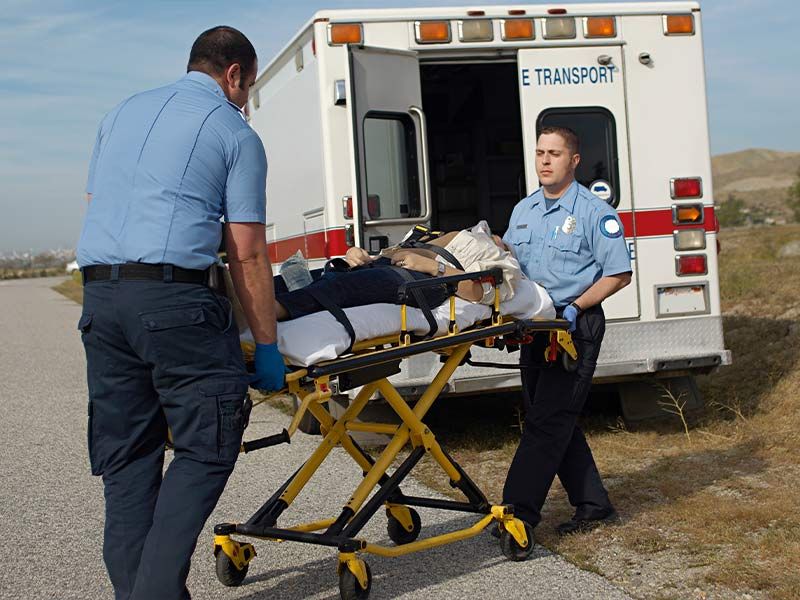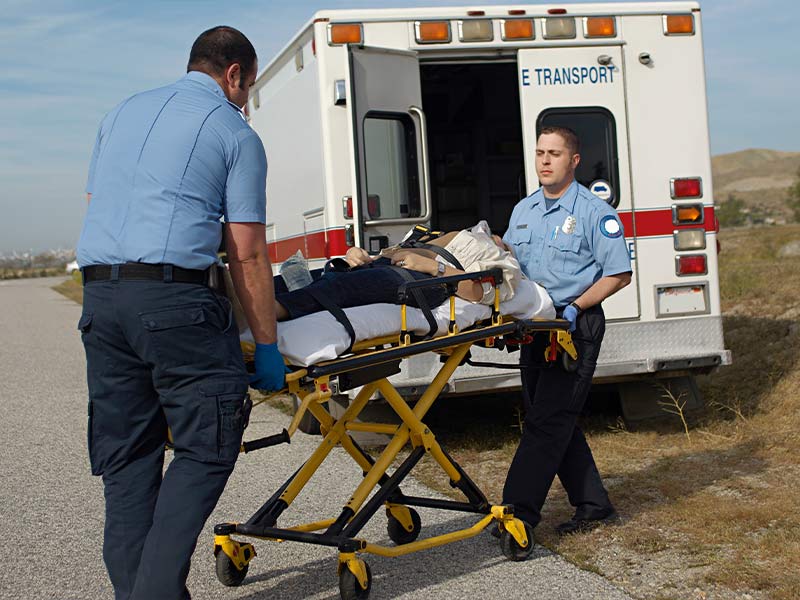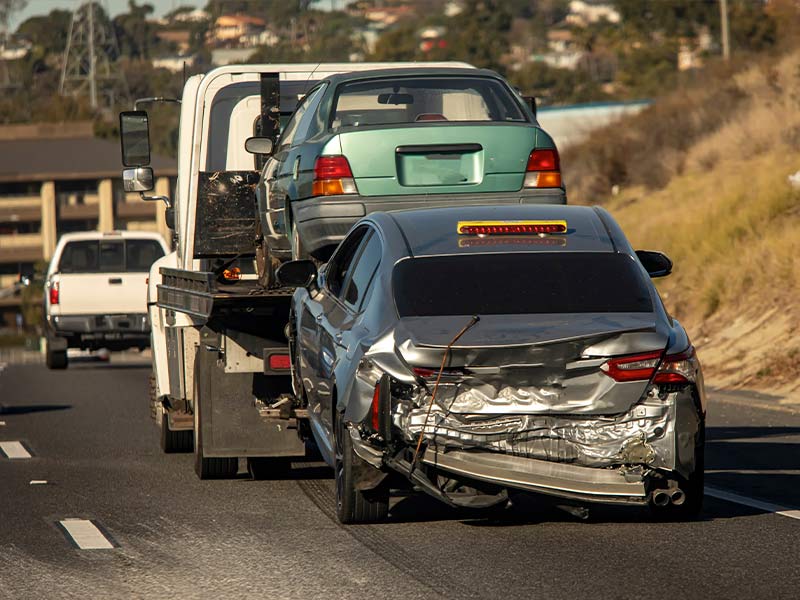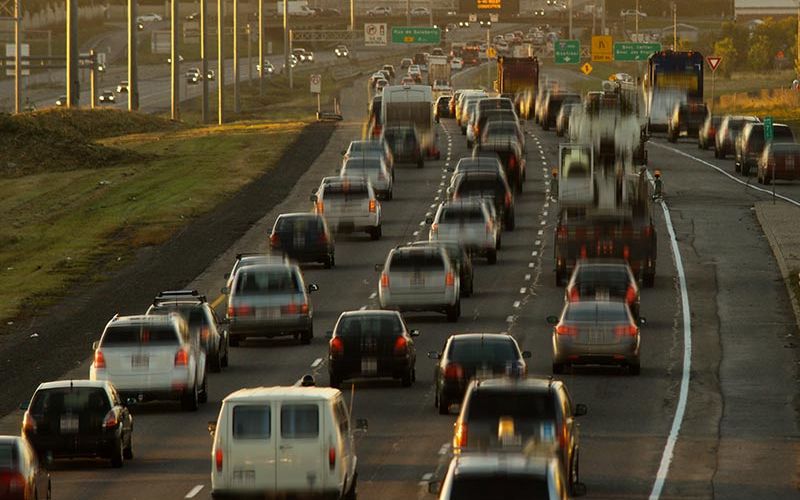What is the Average Payout for a Rear End Accident?



Rear-end car accident cases in South Carolina are not always as cut and dried as they may seem. It is true that whether you were brake checking or the other car is tailgating you, or both, or in some different situation, rear-end car crashes usually have a clear driver who is liable for the accident. If someone has hit you from behind in a rear-end car accident, you may still be wondering what to do next.
The experienced car accident lawyers at the HawkLaw, P.A. law firm are ready to assist you with gathering evidence, building a strong accident injury claim, and negotiating with insurance adjusters on your behalf. You do not have to go it alone. HawkLaw Fights to Win, and we are ready to fight for fair compensation in your car accident settlement.
What to Do After a Rear-End Crash?
The steps to take immediately after a rear-end car accident are the same as those after any other accident. The first, and most important thing to do, is to try and keep your wits about you and maintain a clear head. Getting angry and accusatory will not help, and it can actually hurt you in the long run.
Seek Medical Attention
The first thing to do is to call first responders right away. Everyone on site must get medical attention, including you. Even if you do not feel hurt, be sure that a medical professional examines you. Some injuries can take days, weeks, and even months to show symptoms, and getting medical treatment early can prevent an injury from worsening. It also demonstrates to the insurance company that you took the situation seriously immediately, should you need to pursue a claim later.
Call Law Enforcement
When you call first responders, request that law enforcement be sent as well. Having police on the scene helps pursue your case. Having police at the location allows you to file a police report, which you should always do after an accident. While a police report cannot be used as evidence in a court case, it can be an important touchstone for you to remember the details of what happened as you retell your story in the future.
Gather Evidence
Whatever evidence you can gather of the accident may be of help. Take photos of the scene from as many angles as possible, including the damage to your vehicle, skid marks on the pavement, any damaged landmarks such as street signs and phone poles, and other physical evidence.
Make notes and draw a diagram while it is fresh in your mind. Speak to witnesses and ask if they can testify to what they saw. If they are, get their contact information. Eyewitness testimony can be important in your car accident settlement. In the end, the more evidence you can gather, the better off you will be when it comes to negotiating your car accident settlement.
File an Insurance Claim
Contact your insurance company immediately when you get home and file an accident claim. Many insurance providers make it a requirement in every insurance policy that you must report accidents within a specific timeframe, and failure to do so could result in losing coverage. This does not mean, however, that you need to tell your side of the story. The beginning of your insurance claim just requires you to report the accident.
If the insurance company asks for more details, stick to the bare facts. You will probably hear from an insurance adjuster within a few days. Never agree to a rear-end collision settlement or sign any settlement offer or document without first conferring with your lawyer. The most important thing to remember is that you do not have to speak to the insurance company at all after your initial report. You can always direct them to your car accident attorney.
Contact an Attorney
Contacting a South Carolina personal injury attorney may be the most critical call in your rear-end collision settlement case. In fact, a survey conducted by Nolo showed that having an attorney can improve your chances of getting compensation and a higher rear-end car accident settlement amount. This survey showed the settlement value for those with an attorney averaged roughly 31% higher than the settlement value for those without legal representation. Having an attorney in your corner can save you stress and provide an important ally in your fight for justice.
The knowledgeable personal injury lawyers at HawkLaw are here to listen to your case and fight for your recovery. To request a case evaluation, legal advice, and free consultation,* call 888-HAWKLAW or complete the online contact form to speak with a member of our team today.
Causes of Rear-End Car Accidents
The National Highway Transportation Safety Administration (NHTSA) defines a rear-end accident as one in which a vehicle is struck from behind by another vehicle’s front end. There are many reasons why rear-end collisions happen. Whether it involves someone trying to bait you into the accident by checking their brakes, a person not paying attention, the driver in front brake slamming to avoid a collision, or bad weather, all can result in severe injuries.
Tailgating
Tailgating simply means following another vehicle too closely to stop safely should that car come to a sudden halt. It is a type of aggressive driving, which can also include speeding, cutting vehicles off, or brake slamming. South Carolina law defines tailgating as following another vehicle more closely than is reasonable and prudent. This means that drivers are expected to account for the speed they are going and how long it will take their vehicle to come to a complete stop if the car in front of them also comes to a sudden halt.
Distracted Driving
Distracted driving is any activity requiring a motorist to take your eyes off the road. Most people commonly associate distracted driving with cell phone use and specifically texting while driving.
While this is a common form of distracted driving, the term can also include an at-fault driver eating and drinking, reading while behind the wheel, checking your reflection in the vanity mirror, or even fiddling with the infotainment system trying to find something to listen to or entering directions into a GPS. Even taking your eyes off the road for a few seconds can result in catastrophic accident injuries.
Weather Conditions
Many severe weather conditions can create dangers resulting in rear-end auto accidents. Those that come to mind immediately include snow and ice. Even a light rain, however, can cause a car to hydroplane or create slippery roadways as it brings grease and oil to the road’s surface. Extreme heat can also make stopping difficult because it affects your tires and can reduce traction. Drivers must always be aware of the weather conditions on any road to avoid serious auto accidents.
What Are Common Injuries in Rear-End Accident Cases?
Car accident injuries can range from minor bumps and bruises to catastrophically serious injuries resulting in accident victims’ deaths. Some of these injuries can even be caused by devices designed to save lives. Accident victims can suffer broken bones, brain injuries, and even wrongful death. Among the most common types of injuries in car accidents are soft tissue injuries, head and neck injuries, and spinal cord injuries.
Soft Tissue Injuries
Soft tissue injuries refer to injuries that are not related to your bones. These include such things as sprains, torn muscles and ligaments, strains, bruises, and even cuts and lacerations. Soft tissue injuries can result in bruising and contusions, swelling, pain, and even loss of function in a limb. The one thing this classification has in common is that it tends to be an injury of muscles, ligaments, and tendons.
Head and Neck Injuries
Whiplash is the most common form of head and neck injury experienced in a car accident. Whiplash occurs when your head whips forward and suddenly stops, disrupting your neck muscles. It is a type of soft tissue injury. Whiplash, however, can also be combined with other types of injury. When your head moves forward and suddenly stops, for example, your brain can rattle around in your skull, causing you to suffer a serious traumatic brain injury.
Direct impacts to the skull can be another form of head injury that carries serious and lifelong consequences. Head and neck injuries can result in cognitive difficulties, mental illness such as depression, mood swings, and even loss of ability to relate to the people you love. Some symptoms of head and neck injuries include unexplained headaches, back or shoulder pain, stiffness and pain in the neck, and confusion.
Spinal Cord Injuries
Spinal cord injuries are injuries to the bones and nerves in your back. These types of back injuries can range from herniated discs to broken bones and even long-term or permanent nerve damage. Those who suffer spinal injuries may spend years in physical therapy or with a chiropractor trying to correct the damage.
In severe cases, a spinal injury can result in loss of function in one or more limbs and even complete paralysis or death. These are some of the most serious injuries you can suffer in a car accident.
Airbag and Seat Belt Injuries
Injuries caused by passive safety systems like seat belts or airbags can be devastating. When a seat belt locks to keep you from striking the dashboard or steering wheel or going through the front windshield, it can sometimes damage the pelvic region or even the chest cavity that protects your ribs, heart, and lungs. Though relatively rare, seat belt trauma has resulted in the deaths of motorists.
Airbag injuries often result in scrapes and bruises. While they save lives, striking the airbag at high speed can still cause catastrophic damage like traumatic brain injuries. Sometimes the airbag may fail, or accident victims make come forward before the bag has time to inflate completely.
Gathering Evidence for a Lawsuit
Gathering evidence for a rear-end accident is of primary importance in pursuing your injury case. Everything you can gather at the scene of the accident will be helpful. Your personal injury lawyers from HawkLaw can also help you determine what else to collect, but it includes records of all of your medical expenses, including medical bills, records of all medical care from doctor’s office visits, medications, medical procedures like surgery, diagnostics, physical therapy, medical equipment, and the cost of in-home services.
Keeping a journal of how your injury has affected your life can also help to prove your case, including the level of emotional trauma and the pain and suffering you endure. Bills from property damage, like the costs to repair your vehicle, can also be important. The contact information of any witnesses willing to testify on your behalf can also be helpful. The more evidence you have, the stronger your case will be.
The reason all of this is important is that South Carolina is a fault-based state for car accidents. This means that the at-fault driver must pay for the damages from the accident. South Carolina also has a concept of modified comparative negligence, which may reduce your award by the percentage of responsibility you hold. For example, if your damages are found to be worth $100,000 but you are found to be 10% responsible for the accident, you would only receive $90,000.
In addition, South Carolina’s modified comparative negligence states that if you are more than 50% at fault, you cannot recover damages at all. This is why it is so essential for you and your car accident attorney to build a strong case with as much evidence as possible.
Who Is at Fault in a Rear-End Collision?
Fault in a rear-end car crash almost always lies with the driver who struck the other vehicle from behind. This is because, as a driver, you are always expected to maintain a safe distance between you and other cars to come to a complete stop, even in emergencies.
What If They Were Brake Checking Me?
Brake checking refers to a situation wherein one driver slams on their brakes for an instant, either because they do not like how closely another driver is following them (a form of road rage) or deliberately trying to bait the driver behind into an accident. Even in such situations, the rear driver may still be found responsible because you are expected to maintain a safe distance from other drivers under South Carolina state law.
What About Uninsured Motorists?
Whether or not a driver has insurance has nothing to do with their responsibility in an accident. Dealing with uninsured motorists can be complicated and carries its own issues, but even if the other driver has no insurance, you can still be responsible for the accident.
Despite this, there may be rare occasions where the driver behind is not directly at fault for the accident. If you are unsure whether you are at fault for a rear-end accident, the best bet is to call an accident law firm like HawkLaw for legal advice. Check out the disclaimer and call our law firm at 1-888-HAWKLAW or fill out our online contact form to ask about a free case review* today.
What Damages Can I Claim After a Rear-End Collision?
The types of damages you may collect include economic or special damages and non-economic or general damages. Economic damages are easy to value, while non-economic damages are more subjective.
Economic Damages
Economic damages include your medical bills and expenses, your lost income, property damage, and other clear financial losses from the accident. In cases of wrongful death, they may also include reasonable funeral and burial expenses for the deceased loved one.
Non-Economic Damages
Non-economic damages include things like the emotional trauma you suffered, your loss of ability to enjoy life, the physical pain you deal with every day, and other invisible injuries. Taken together, non-economic damages are often referred to as pain and suffering.
They can include loss of consortium, loss of comfort and support, mood swings, PTSD, emotional trauma, and even your inability to partake in the things you used to enjoy, like hobbies or sports. Many people also ask car accident lawyers about punitive damages.
Punitive damages are not part of your pain and suffering but are in place to punish the other driver. These are exceptionally rare and only awarded in the most egregious cases, like deliberate malice or drunk driving. If they are on the table, your attorney will let you know.
What Is the Settlement Process After a Rear-End Crash?
In a rear-end crash, negligence is often pretty clear. Accident victims in such a rear-end car accident case will file a claim with the at-fault driver’s insurance, which will evaluate the claim and usually offer a settlement amount. Remember, however, that no matter how compassionate they may seem, the insurance adjuster is not on your side. They have one job, and that is to get you to agree to as low an offer as possible.
The first offer from the insurance company will likely be so low it will not even cover your economic damages, let alone your pain and suffering. From there, the negotiation process will begin. You should never sign off on any offer from an insurance provider without first discussing it with your car accident lawyer. Sometimes the insurer will try to trick, cajole, or even bully you into signing.
They might, for example, tell you that you can sign to get money now and talk about more later. Once you sign, however, you may sign away your right to ask for more later. They might threaten you with no money if you do not sign. This is a scare tactic and nothing more. Your attorney can take over communications with them; you do not have to speak to them.
The settlement process begins when your car accident lawyer writes a demand letter outlining your case and why you deserve what you are asking to receive. The insurance company will counter with a lowball offer outlining why you should receive less. From there, a back-and-forth process ensues. Most of the time, a middle ground is reached that satisfies everyone, but it can take some time.
What Happens if I Refuse to Settle?
Usually, when you reject the settlement offer, negotiating your settlement begins. In most cases, though patience is required, and the process can take some time, the case will be resolved eventually. Sometimes, however, negotiations break down. You may refuse to settle, or the insurance company may break off negotiations and refuse to give anymore. In such cases, several options are available. Mediation and arbitration can see a neutral third party step in to help get the process back on track (or, in the case of arbitration, resolve it for both parties).
If neither of these processes works, the case may go to trial. In such a case, it will be served by a verdict. If we do need to go to trial, be assured that the injury lawyers at HawkLaw will be there to fight by your side the entire time. HawkLaw Fights to Win.
When Can I Expect to See Money From the Settlement?
The severity of the accident, the injuries sustained, and the negotiations process can all determine how long it takes to resolve your case and get compensation. Patience is necessary, but know that your attorneys at HawkLaw will keep you informed every step of the way.
What Is the Average Settlement From Rear-End Crashes?
The value of your personal injury case will depend largely on the severity of the injury or injuries you suffer as well as issues like property damage. Providing an average or general value is difficult because every accident case differs.
Why Hire a Car Accident Lawyer in South Carolina?
The biggest reason to hire a car accident lawyer is that you are fighting against powerful insurance companies that know the law and have lawyers on their side. Having a lawyer in your corner allows you to fight back and can result in you receiving more compensation. Your attorney knows how to hold the at-fault driver responsible, and they can save you stress by taking on the fight for compensation while you fight to get well again.
Bumped From Behind and Worried About Compensation?
If you were struck from behind in a rear-end car crash case, you deserve to be paid for your medical bills, lost wages, and pain and suffering. You also do not have to go it alone. Let the attorneys at HawkLaw stand by your side with tenacious determination and a transparent, open, and honest attorney-client relationship. Let us fight for you. Call us at 1-888-HAWKLAW or use our online contact form to request a case evaluation with a member of our team today.
John D. Hawkins
John Hawkins is the Founder and CEO of HawkLaw He has been licensed to practice law in South Carolina since his graduation with honors in 1994 from the University of South Carolina School of Law, where he was on the Law Review and Order of Wig and Robe.
-
$3,000,000*SettlementTrucking Accident
-
$1,005,000*SettlementCar Accident
-
$575,000*SettlementPersonal Injury
"*" indicates required fields















